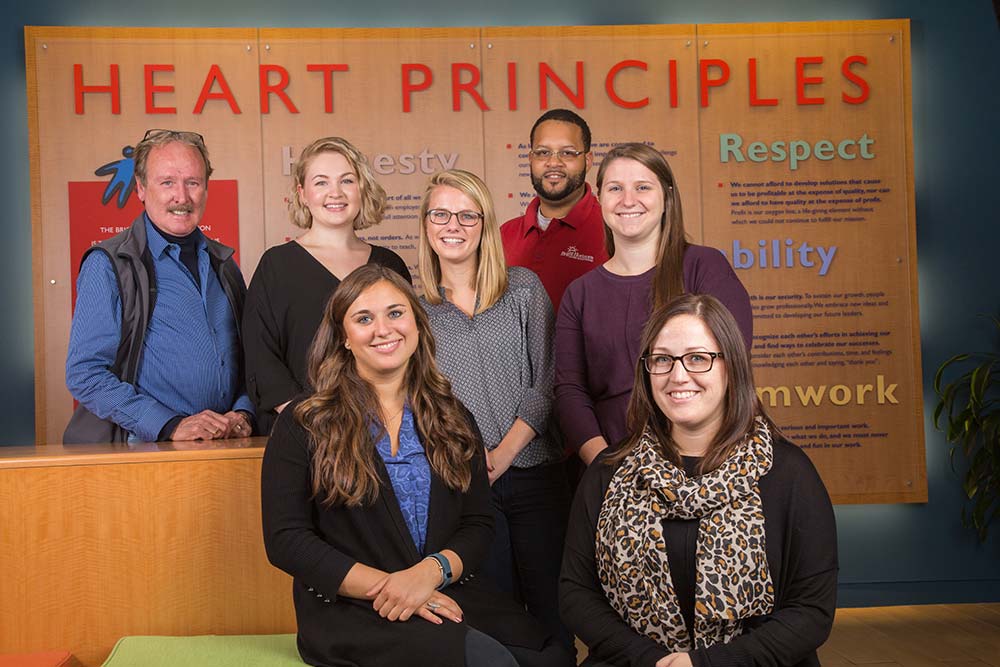As a Bright Horizons employee, I take pride in the fact that we, and many of our client partners, frequently appear on various "best places to work" lists, including the Fortune 100 Best Companies to Work For list, where Bright Horizons recently appeared for the 16th time. I therefore found the New York Times headline Why the 'Best Places to Work' Often Aren't somewhat troubling and launched into the article with a bit of skepticism.
I soon found myself agreeing with the author, however, in his estimation that "these lists don't really measure something even more important [than company culture and perks]: the quality of their employees' lives."
As discussed recently in a blog post by my colleague, Lucy English:
Having never had an employer truly committed to engaging the whole employee a complete person with a family and needs both inside and outside of the workplace they don't realize how much support they're missing and what potential employer support could add to their lives. Imagine the relief employees would feel if they knew they had reliable and engaging care available for their children, even on days when the unexpected happens and the usual childcare plans fall through? What if they knew they had help available to tend to an aging parent one close to home or across the country? What if they could count on expert assistance to help them find the best college for their children at a price that they could afford? And what if they had support in returning to school themselves, satisfying their thirst for knowledge and career ambitions?
Imagine the buzz in your workplace and energy of your workforce when provided with, not simply paper perks, but real benefits that remove stress and pull your employees' work-life balances back toward their families. Imagine the increases in creativity and productivity when employees feel good about their life and feel that their families are taken care of, so they can concentrate on work while at work. Imagine the loyalty and employee retention that this rare type of support engenders.
So while striving to make next year's "best places to work" list, be sure that your mission is not only to create a work environment accommodating to workers, but supportive to whole people, with needs both inside and outside of the workplace.
As discussed recently in a blog post by my colleague, Lucy English:
We know the reality is that there are factors outside of work that affect employees' ability to do their jobs far more than most factors in work. So [employee] surveys need to ask people not only how we, their employers, are doing, but how they, as whole people, are doing as well.According to the New York Times author, Tony Schwarz:
What these employees tell me, with increasing consistency, is how exhausted and overwhelmed they are. The relentless work demands take a toll on their health, happiness and family life. That also affects their morale and their ability to think creatively and reflectively. They've been rewarded for working long hours while sacrificing other aspects of their lives, including time with their families and time for themselves!. In turn, even companies genuinely committed to creating positive work environments mostly continue to operate as if their people have infinite capacity, and are able to do ever more, with fewer resources. Precisely the opposite is true.Whether you agree with Mr. Schwarz's supposition or not, it's worth considering that some of the best companies in the market still may have employees that are feeling overwhelmed and stressed out. Despite thriving in an engaging company culture, employees feel that they must sacrifice their families, and this burden takes its toll on employee health and happiness. So while employees may rate their employers highly, ostensibly satisfied with their salary, benefits, and company mission, they may be what Schwarz refers to as "prisoners of low expectations."
Having never had an employer truly committed to engaging the whole employee a complete person with a family and needs both inside and outside of the workplace they don't realize how much support they're missing and what potential employer support could add to their lives. Imagine the relief employees would feel if they knew they had reliable and engaging care available for their children, even on days when the unexpected happens and the usual childcare plans fall through? What if they knew they had help available to tend to an aging parent one close to home or across the country? What if they could count on expert assistance to help them find the best college for their children at a price that they could afford? And what if they had support in returning to school themselves, satisfying their thirst for knowledge and career ambitions?
Imagine the buzz in your workplace and energy of your workforce when provided with, not simply paper perks, but real benefits that remove stress and pull your employees' work-life balances back toward their families. Imagine the increases in creativity and productivity when employees feel good about their life and feel that their families are taken care of, so they can concentrate on work while at work. Imagine the loyalty and employee retention that this rare type of support engenders.
So while striving to make next year's "best places to work" list, be sure that your mission is not only to create a work environment accommodating to workers, but supportive to whole people, with needs both inside and outside of the workplace.





